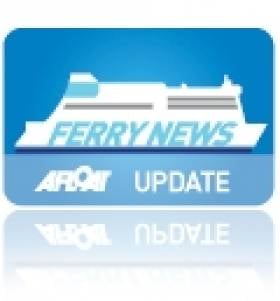Displaying items by tag: Stena AB
Irish Authorities Approve Stena / DFDS Merger
Of the two services, the Belfast-Liverpool (Birkenhead) is for passengers and freight while the and Belfast-Heysham port route is exclusively for freight-only users. To read more about the decision from the authority click here.
In February the UK's Office of Fair Trading (OFT) referred Stena AB's acquisition from DFDS A/S to the Competition Commission, conclusions on the report are not expected to be made until 25 July. To read more about the merger click here.
In the meantime the Belfast-Liverpool (Birkenhead) route continues trading under the name of Stena Line Irish Sea Ferries Ltd which is separately operated to Stena Line's other Irish Sea routes.
Sailings on the 8-hour route are run by the Italian built 27,510 tonnes ro-pax twins Lagan Seaways and Mersey Seaways which have been in service since the newbuilds were launched in 2005.
As the acquisition remains subject to regulatory clearance, passengers intending to travel on the route can continue to make bookings through the DFDS Seaways website by logging onto this link.
In addition the acquisition involved the sale of the South Korean built freight-ferries Hibernia Seaways and Scotia Seaways which operate Belfast-Heysham sailings.





























































